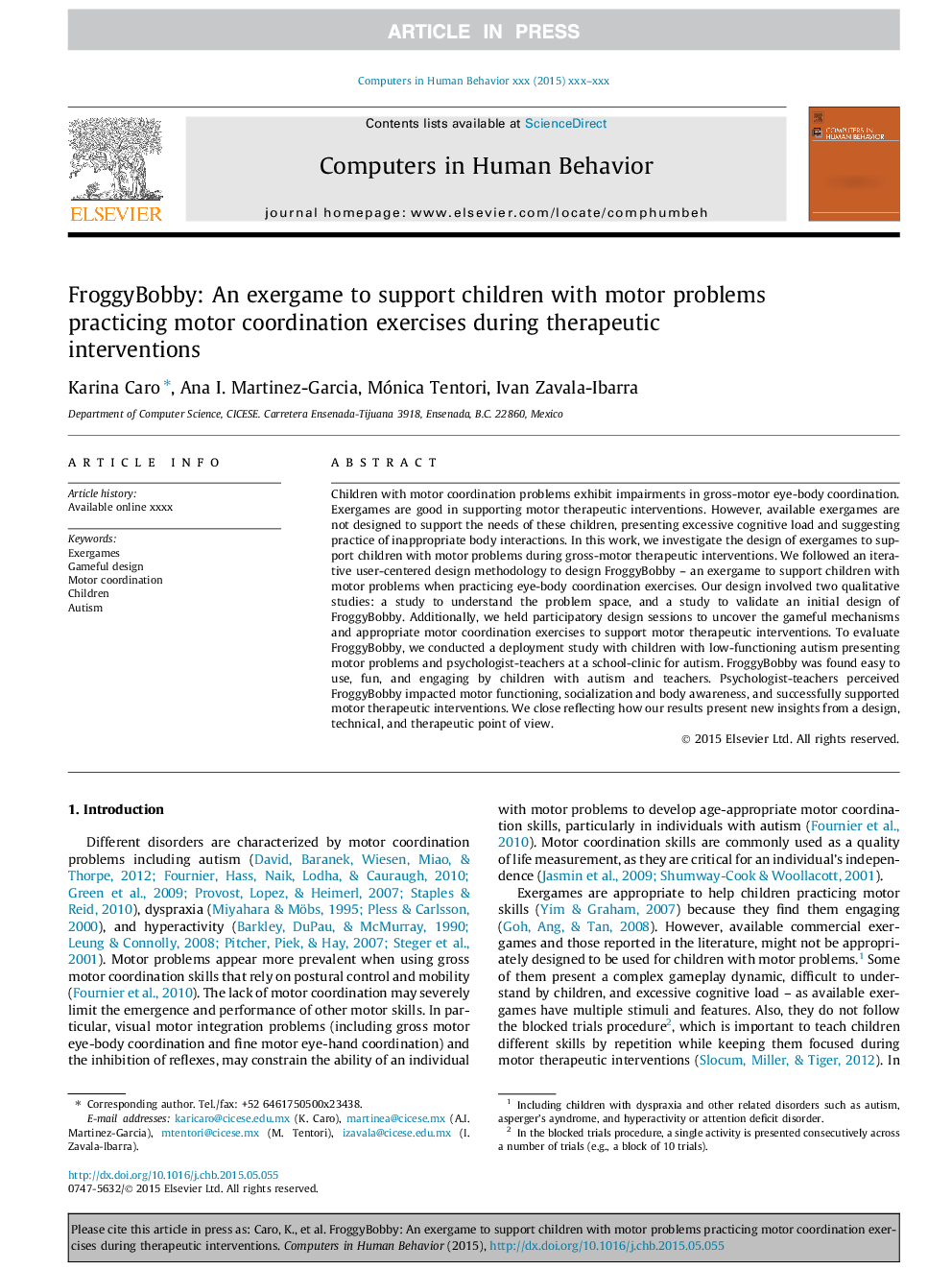| Article ID | Journal | Published Year | Pages | File Type |
|---|---|---|---|---|
| 4937382 | Computers in Human Behavior | 2017 | 19 Pages |
Abstract
Children with motor coordination problems exhibit impairments in gross-motor eye-body coordination. Exergames are good in supporting motor therapeutic interventions. However, available exergames are not designed to support the needs of these children, presenting excessive cognitive load and suggesting practice of inappropriate body interactions. In this work, we investigate the design of exergames to support children with motor problems during gross-motor therapeutic interventions. We followed an iterative user-centered design methodology to design FroggyBobby - an exergame to support children with motor problems when practicing eye-body coordination exercises. Our design involved two qualitative studies: a study to understand the problem space, and a study to validate an initial design of FroggyBobby. Additionally, we held participatory design sessions to uncover the gameful mechanisms and appropriate motor coordination exercises to support motor therapeutic interventions. To evaluate FroggyBobby, we conducted a deployment study with children with low-functioning autism presenting motor problems and psychologist-teachers at a school-clinic for autism. FroggyBobby was found easy to use, fun, and engaging by children with autism and teachers. Psychologist-teachers perceived FroggyBobby impacted motor functioning, socialization and body awareness, and successfully supported motor therapeutic interventions. We close reflecting how our results present new insights from a design, technical, and therapeutic point of view.
Related Topics
Physical Sciences and Engineering
Computer Science
Computer Science Applications
Authors
Karina Caro, Mónica Tentori, Ana I. Martinez-Garcia, Ivan Zavala-Ibarra,
